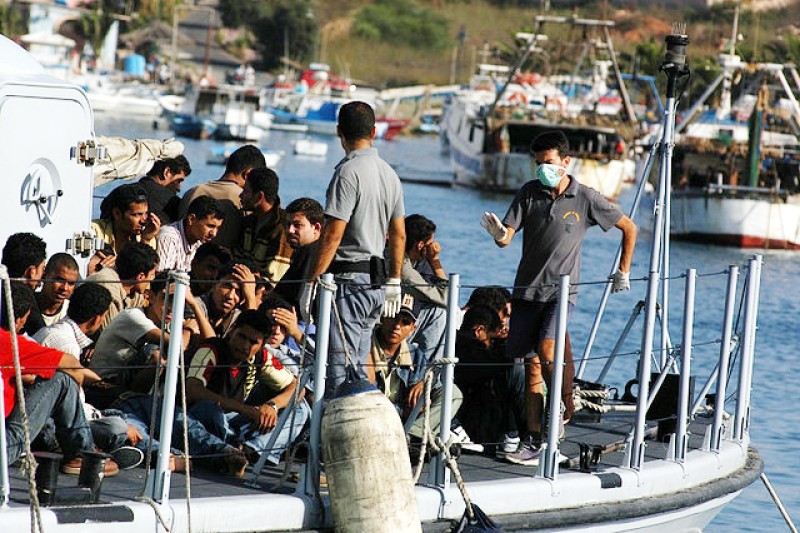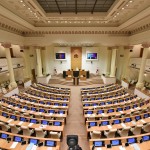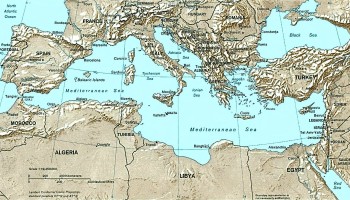The UNHCR estimates that 59.5 million were displaced in 2014 – a sharp increase on the previous year’s estimated total of 51.2 million. It was the largest rise recorded in a single year, and nearly half of the displaced people were reported to be children.
The growing tide of displacement has been fuelled by conflict and poverty in countries such as Syria, Libya and Ukraine.
Antonio Guterres, UN High Commissioner for Refugees, had harsh words for the international community’s “utter inability” to come together and tackle the issue.
He warned: “We are witnessing a paradigm change, an unchecked slide into an era in which the scale of global forced displacement as well as the response required is now clearly dwarfing anything seen before.”
The crisis has fostered a plentiful market for human traffickers keen to exploit the plight of refugees and migrants for cash.
According to the UNHCR, the rise in displacement has directly resulted in an increase in “refugees seeking safety through dangerous sea journeys, including on the Mediterranean, in the Gulf of Aden and Red Sea, and in Southeast Asia.”
In South-East Asia, the crisis came to a head last month when more than 8,000 migrants were turned away by the Indonesian Navy and left stranded at sea. The refugees – mostly from Myanmar and Bangladesh – were eventually offered temporary shelter in Malaysia and Indonesia.
More shocking news came later that month, when 139 graves and evidence of torture was found at human trafficking camps in Malaysia, near the border with Thailand. The camps, hidden in dense jungle, were used by migrant smuggling gangs whose victims were largely Rohingya Muslims fleeing persecution in Myanmar.
Earlier this year, 800 migrants were killed when their vessel capsized as they tried cross the Mediteranean to the European Union (EU). While the disaster captured headlines around the world, an effective response to the issue has been slow to materialize.
In April, the EU drafted a plan to deal with an influx of migrants and curb the activities of human traffickers using military force. However, EU member states such as France and Spain withdrew their support for the plan because of disagreements with a controversial migrant quota system contained in the proposal. Little progress has been made since.
Since the start of 2014, more than 1,000 people have been arrested on human trafficking charges in the Sicilian city of Catania alone. Catania serves as a hub for migrants who have been rescued at sea by the coastguard on their way to Italy. However, only 100 of these cases have made it to trial, and as of April none had reached a final judgement.






